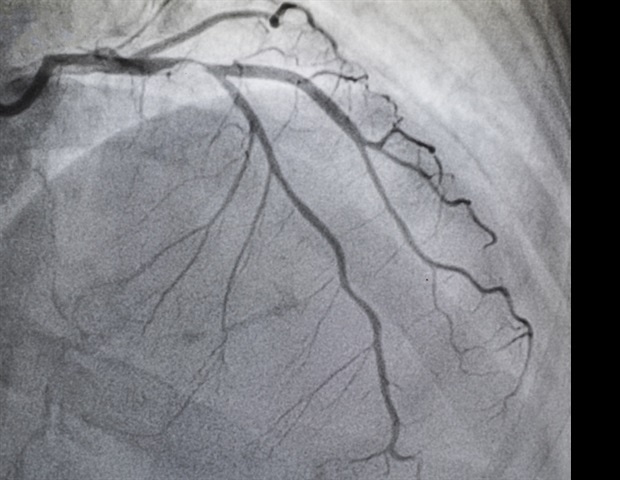Reviewers’ Notes

Inorganic nitrate reduces contrast-induced nephropathy in high-risk patients
Inorganic nitrate reduces contrast-induced nephropathy (CIN), improves renal outcomes and reduces cardiac events compared to placebo in patients at risk of renal injury undergoing coronary angiography for acute coronary syndrome, according to late breaking research presented in a Hot Line session today at ESC Congress 2023.
CIN, also termed contrast associated-acute kidney injury, refers to a deterioration in renal function after contrast exposure and is a serious complication of coronary angiography. Older age, heart failure, chronic kidney disease and diabetes are independent predictors of CIN following coronary angiography for acute coronary syndromes. CIN is associated with longer hospital stays, an increased risk of myocardial infarction and higher mortality. ESC guidelines highlight that patients with chronic kidney disease have been excluded from randomized trials on myocardial revascularisation and that additional randomized evidence is needed on optimal strategies for CIN prevention.
Research has suggested that nitric oxide is deficient in CIN; therefore, strategies to replace nitric oxide might be of benefit.7 Inorganic nitrate is metabolized in the body to deliver nitric oxide to areas of the body in need and has shown renoprotective effects in preclinical studies.8 The NITRATE-CIN trial examined the efficacy of inorganic nitrate for the prevention of CIN in patients with non-ST elevation acute coronary syndrome referred for invasive coronary angiography and at risk of CIN. Risk of CIN was defined as an estimated glomerular filtration rate (eGFR) <60 ml/min or two of the following: diabetes, liver failure (cirrhosis), age >70 years, exposure to contrast in the last 7 days, heart failure (or left ventricular ejection fraction <40%), and concomitant renally active drugs.
NITRATE-CIN was a double-blind, randomized, placebo-controlled trial conducted at Queen Mary University of London and St Bartholomew's Hospital in London, UK. Patients were randomized in a 1:1 ratio to once-daily potassium nitrate (12 mmol) or placebo (potassium chloride) capsules for 5 days.
The primary endpoint was the incidence of CIN (³0.3 mg/dl or ³26.5 mmol/L increase in creatinine within 48 hours or ³1.5 times within 1 week), as defined by the Kidney Disease Improving Global Outcomes (KDIGO) criteria for acute kidney injury. Secondary outcomes included renal function (eGFR) at 3 months, rates of procedural myocardial infarction and major adverse cardiac events (MACE, a composite of death, non-fatal myocardial infarction and unscheduled revascularisation) at 12 months. Standard care for CIN prevention in both arms matched ESC recommendations (hydration before and after coronary angiography, use of low-osmolar contrast media).6
Over a 3-year period, a total of 640 patients were randomized: 319 received inorganic nitrate and 321 received placebo. The mean age of trial participants was 71.0 years, 73.3% were men, 75.2% were Caucasian. 45.9% had diabetes, 56.0% had chronic kidney disease (eGFR <60 ml/min) and the mean Mehran score was 10. The median follow-up was 1.0 years.
Inorganic nitrate treatment significantly reduced CIN rates (9.1%) versus placebo (30.5%; p<0·001). This difference persisted after adjustment for baseline creatinine concentration and diabetes status (odds ratio [OR] 0.21; 95% confidence interval [CI] 0.13 to 0.34). Secondary outcomes were improved with inorganic nitrate, with lower rates of procedural myocardial infarction (2.7% vs. 12.5%; p=0.003), improved 3-month renal function (between group change in eGFR 5.17 [interquartile range 3.94-7.39]) and reduced 1-year MACE (9.1% vs. 18.1%; p=0.001) versus placebo.
In patients at risk of renal injury undergoing coronary angiography for acute coronary syndrome, dietary inorganic nitrate reduced CIN compared to placebo. This corresponded to improved renal outcomes at three months and MACE at 12 months. These findings could have important implications for health systems by reducing the burden of CIN and the associated prolonged admissions, dialysis, and significant costs. Further studies powered for adverse cardiac events are needed to confirm these findings."
Dr. Dan Jones, study author representing the team at Queen Mary University of London
European Society of Cardiology (ESC)
Posted in: Medical Research News | Medical Condition News
Tags: Acute Coronary Syndrome, Acute Kidney Injury, Angiography, Cardiology, Chronic, Chronic Kidney Disease, Cirrhosis, Contrast-Induced Nephropathy, Creatinine, Diabetes, Dialysis, Drugs, Efficacy, Health Systems, Heart, Heart Failure, Hospital, Hydration, Kidney, Kidney Disease, Liver, Mortality, Myocardial Infarction, Nephropathy, Nitric Oxide, Placebo, Potassium, Preclinical, Research, Syndrome